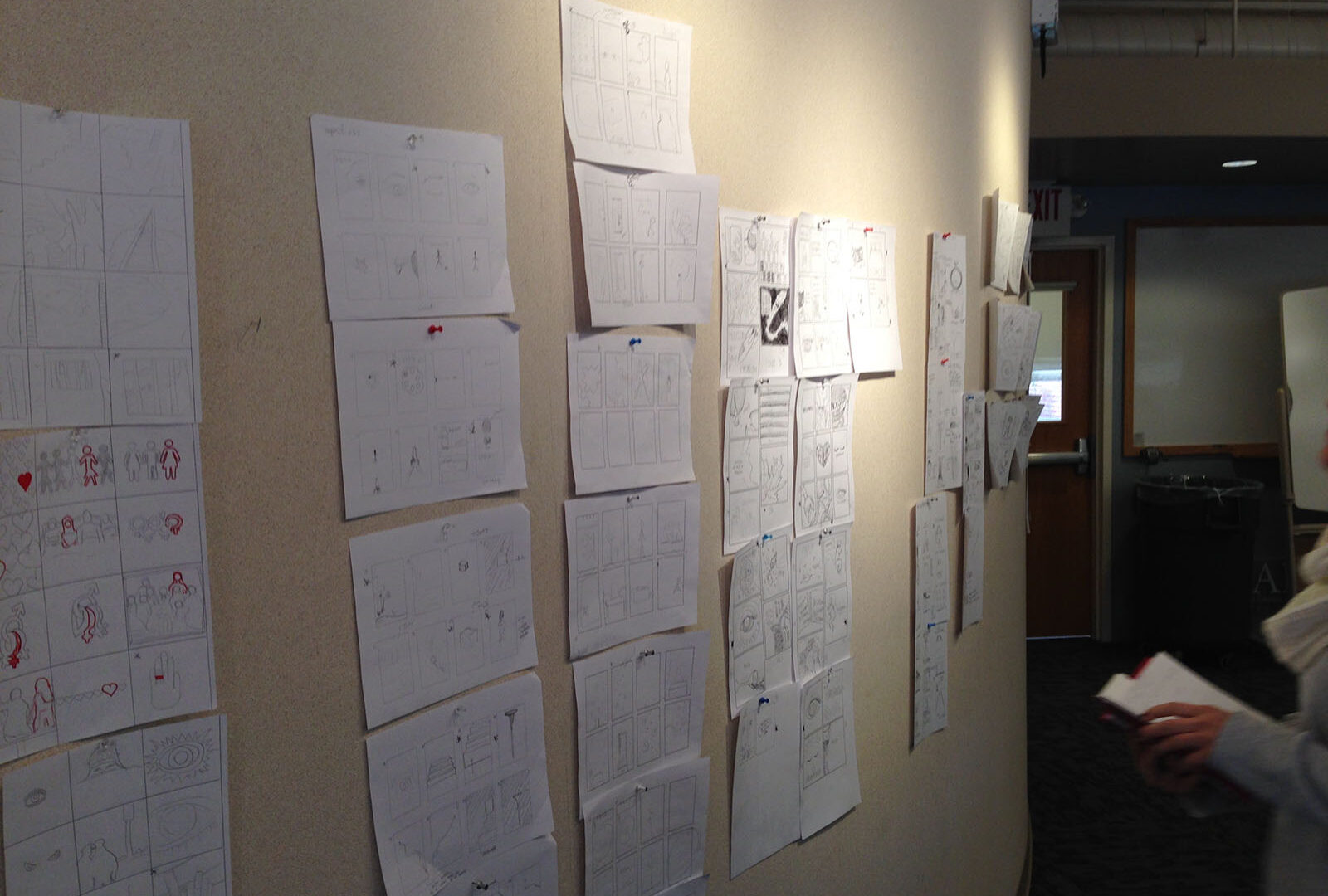The Value of Forced Forgetfulness

A few years ago one of my mentors told me that teaching was theater. Having sat in his classes where he delivered lectures with unforgettable enthusiasm and humor, I can vouch for the fact that his delivery was as theatrical as he was scholarly. Now that I am teaching design I’m finding my own style of theater which includes injecting quips and obscure pop culture references into critiques. Another part I part is that of “forced forgetfulness” where I strive to ensure I address a student’s work with fresh eyes. I’ve found that when I force myself to “forget” prior students’ design work and make the effort to respond objectively to what’s in front of me, I give my most effective critique. The role of forced forgetfulness has never been as clear as it is now,
This semester I’m co-teaching Highwire Brand Studio, a course that challenges students in design and marketing to work together on a branding problem for an outside client. Early in the semester, students are split into three teams of about 10 each and over the course of the semester, they work to design solutions that most effectively address the client’s charge. Every class period, student teams work in their own meeting rooms and the class does not as a whole until finals week when each team presents their work to the client. This means that Highwire is essentially three sections of the same class that are all held simultaneously and for me, it has been a great reminder that teaching problem-solving calls on educators to exercise forced forgetfulness.
For Highwire, my marketing colleague and I participate in critique sessions back-to-back-to-back, one with each team each hour. As a result, when I’m teaching Highwire I listen to three different problems and solutions every hour. Though the charge from the client at the start of the semester is the same for all teams, the deviance in students’ problem framing and solving processes varies. Sometimes this means that students in multiple teams present the same ideas and I must act as if I have never heard those ideas before when I respond to them. Other times I get to genuinely respond to each teams’ concepts as being unique. Regardless, I am reminded that teaching does have a small component of theater to it—something I didn’t expect before becoming an educator.

Be the First to Comment